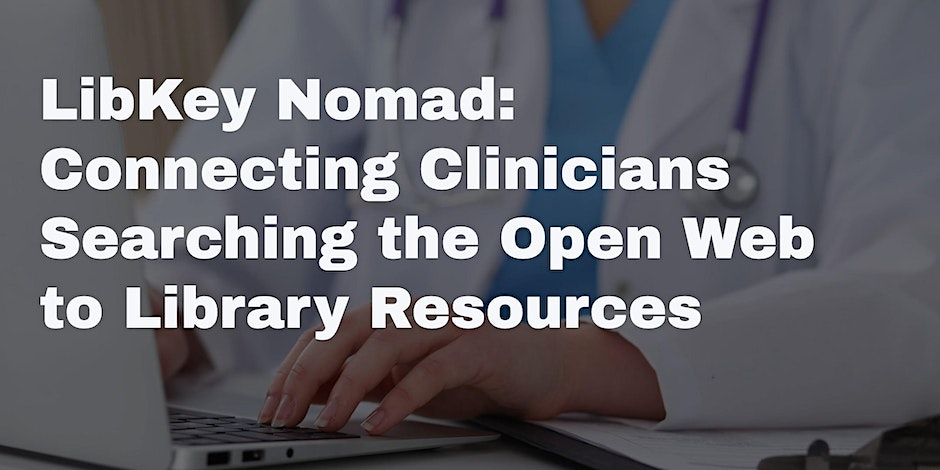Transforming MLA Communities: Detailed Information
November 2018; updated July 2019
The plan to transform MLA communities is grounded in the essential objectives of inclusion, enhanced collaboration between our diverse member communities, strengthening of those communities as our “professional home,” and improved experience and value for us as MLA members.
Inclusion and Diversity
The Diversity and Inclusion Task Force, chaired by Sandra G. Franklin, AHIP, FMLA, and the Communities Strategic Goal Task Force, chaired by Rikke Ogawa, AHIP, worked together to align on the following recommendations, which the MLA Board approved:
- replace the dual-level of MLA member communities (sections and special interest groups [SIGs]) with a single tier (caucuses); and
- eliminate the financial barrier to joining an MLA member community by setting all MLA member community dues to $0.
As an MLA member, you will be able to join and participate in any member community, at no extra cost, starting September 1, 2019.
Introducing “Caucuses” and the “Community Council”
All MLA member communities will be referred to as “caucuses” as of September 2019. From an MLA Bylaws compliance perspective (as recommended by the MLA Bylaws Committee led by Emily Ginier), caucuses will technically be sections.
Starting September 2019, SIGs will become sections, all sections (including SIGs) will be referred to as caucuses, and “section” dues are set to $0. At the same time, the Section Council will be renamed the “Community Council” and will continue to abide with the MLA Bylaws, which are unchanged.
These changes will have an immediate positive effect on MLA diversity and inclusion as well: all caucuses will now be represented in the Community Council. All MLA member communities will therefore have a voice in:
- governing MLA communities
- electing the Community Council chair, who has an ex-officio voting seat on the MLA Board of Directors (three years)
- nominating candidates to the MLA Nominating Committee
Currently, SIGs do operate in a simpler fashion than sections, while both SIGs and sections greatly vary in size from ten or so (fifty for a section) to several hundred. In the spirit of administrative simplification, the board has followed the Communities Strategic Goal Task Force and Bylaws Committee recommendations to:
- set the minimum size for any caucus to 10
- eliminate all section bylaws, and replace those by a simpler Procedural Manual that:
- allows for simple operation for small groups, as well as larger ones,
- complies with the MLA Bylaws with regards to leadership elections,
- specifies how to appoint nonelected roles,
- requires midyear executive reports and annual reports, and
- requires one annual meeting (face-to-face or virtual).
Therefore, administration will be simpler for sections, while it may be a little more work for SIGs. We had to find the right middle ground that is compliant with MLA Bylaws because we will just have one member community type (caucuses).
Enhancing Collaboration
If MLA did just the above (change SIGs and sections to caucuses, and make them free for members), that would not achieve much added value to you as a member and to MLA as an advocate for our profession.
To unleash value, the Communities Strategic Goal Task Force recommended, and the MLA Board approved, the creation of seven collaborative areas for caucuses, each aligned with a professional practice area, which are called domain hubs.
Domain hubs are groups where caucuses come together to collaborate on activities and programs of interest to a broad audience (e.g., MLA members, the public, health care providers) and to connect to MLA-wide activities and programs (e.g., annual meeting, continuing education, MLA News, and MLANET). Domain hubs are organized by domains of practice of the health information profession: they are the go-to place for members to access integrated content, and they provide the public a window into the profession and access to open resources.
In the next year, you will see MLA activities align to MLA domain hubs, with the most visible being member communities and the MLA annual meeting (starting with MLA ’19 in Chicago).
- Information Services
Larger Common Themes: research assistance; outreach to specific communities; subject knowledge development; expert searching - Information Management
Larger Common Themes: meta-data; representation of information; collection of information; research data management - Education
Larger Common Themes: pedagogy/andragogy; instruction to health professionals; educational technology; librarian as instructor; instructional design; information literacy - Professionalism and Leadership
Larger Common Themes: ethics; equity, diversity, and inclusion; development of leaders; management (HR, fiscal, project, etc.); influence in health care organizations; education of and advocacy for health information professionals - Innovation and Research Practice
Larger Common Themes: evidence-based librarianship; informatics; research training; diversity in scientific research; assessment and evaluation - Clinical Support
Larger Common Themes: evidence-based practice (EBP) curriculum and habits in health professions; role of librarianship in clinical settings; providing high-quality health information to consumers - Global Health and Health Equity
Larger Common Themes: development of health information professionals globally; equity in access to health information; international collaborations for MLA and medical librarianship
Enhancing Collaboration: How Will Hubs Work?
Here are highlights of how domain hubs will operate and be fully operational by May 2020:
-
Caucuses (not MLA members) join one or more domain hubs (starting September 2019) and by doing so, become active participants of that domain hub’s governance and strategy.
-
Hubs will be connected to MLA programs and committees (fully implemented by June 1, 2020, when committee cycles begin) and work with MLA staff in areas such as website member and public resources.
-
MLA News Editor Christine Willis, AHIP, will appoint a column editor for each hub to encourage publication of content from caucuses and hubs (starting September 2019).
-
MLA staff will launch a collaborative workspace area to facilitate the connection of individuals and groups to launch and work on grassroots projects (think of it as the “GIG” economy model for volunteer organizations), which will have the long-term effect to shift some tasks from appointed committees and task forces to members and groups with individual initiative.
-
We expect caucuses to spawn many of the projects, either on their own or in collaboration with others.
The board will set up a Community Transition Team that will work collaboratively with current sections and SIGs to get domain hubs started and to define the initial domain hub vision by end of July 2019. The goal is for sections and SIGs, once they become caucuses in September 2019, to be able to make informed decisions regarding their participation in one or more domain hubs starting October 2019.
How You Will Benefit
We have come full circle back to the Community Strategic Goal Task Force’s first outreach to MLA members: the Communities Guiding Principles. Those are summarized as follows:
- Communities provide valuable homes to their members
- Diversity, equity, and inclusion are the threads that strengthen the fabric of the Medical Library Association
- Communities are organized to retain existing members and attract new ones
- Communities embody and advance the MLA mission
- Communities are judicious in their use of limited resources
Communities provide valuable homes to their members:
- Coalesce around topics of mutual interest.
- Initiatives are interesting; causes are meaningful; activities are fun.
- Shared ideas and experiences can improve performance at work.
- Group and personal achievements are recognized.
- MLA engagement and leadership development path is clear; training is available.
Diversity, equity, and inclusion are the threads that strengthen the fabric of the Medical Library Association:
- Communities are inclusive for all MLA members seeking a place to exchange ideas and experiences.
- Communities reflect the diversity of MLA member interests.
- Communities are a safe space for members to exchange ideas and experiences.
Communities are organized to retain existing members and attract new ones:
- Communities are segmented in relevant and focused areas of interest.
- Communities are adapted to the current and future needs and expectations stage of career.
- Communities are active throughout the year through in-person and virtual involvement.
- Communities are easy to promote and to join for MLA members and nonmembers; the value proposition and business model (dues, membership structure) is easily communicated and demonstrated.
Communities embody and advance the MLA mission:
- The roles to contribute to MLA programs (education, annual meeting, MLA News, JMLA, advocacy, awards and scholarships, AHIP) are clearly defined and productive.
- Member and group content use and visibility are maximized (no silos!).
- The paths and processes for outreach to community members, MLA members, and the public (nonmembers) are clearly defined and simple to navigate.
- Vanguard to help shape MLA attention/activities
- basic demonstrated leadership skills;
- 3 to 5 year horizon for their thinking (not about term of leadership, but about a state of mind thinking beyond your immediate leadership term: continuity);
- ability to inspire and empower others;
- understanding of value creation in a limited resources environment.
Communities are judicious in their use of limited resources:
- Volunteer time is used effectively.
- Staff time and headquarters resources are used effectively within budget.
- Members value the use of their community dues.
- Initiatives are prioritized based on value (mission) and resource use (volunteer, staff, budget).
The Communities Strategic Goal Task Force recommendations include a plan and metrics to assess how MLA does in achieving your improved experience and value. There are a number of practical moving parts as well, that various MLA committees will be looking at, including Academy of Health Information Professionals (AHIP) points related to volunteer contributions.
Finances
The MLA Board has deferred decisions on section finances to September 2019 and the 2020 budget, for two main reasons:
- 2019 finances are not affected by the community transformation
- Several foundational elements need to be in place to allow informed decision making on allocating section funds:
- defining an MLA-wide scholarship vision that is attractive to MLA communities
- funding that vision
- providing a substantive picture of each domain hub’s activities that would identify initiatives that may need seed funding
- working out the details that are specific to each section
Please expect more communication on the process and timeline of the above, and be ready conversations ahead of September!
Quick Timeline
As a Member:
- 2019 membership: nothing changes (join SIGs for free, pay section dues)
- 2019 section awards and scholarships: nothing changes (apply as usual)
- 2020 membership: join any caucus (previously SIGs and sections) as an MLA member benefit at no extra cost
- 2020 awards and scholarships: look for MLA-wide scholarships
As a SIG:
- Through June 2019: participate in discussions on:
- MLA scholarship vision
- domain hub initial vision
- September 2019:
- Your SIG becomes a caucus.
- Select the domain hubs you wish to actively participate in; appoint a domain hub “delegate.”
- Early 2020: hold leadership elections, start date effective June 1, 2020
- Starting June 1, 2020: fully comply with caucus requirements, and fully participate in all caucus activities (including Community Council)
As a Section:
- Through June 2019: participate in discussions on:
- MLA scholarship vision
- domain hub initial vision
- September 2019:
- Your section becomes a caucus.
- Your section funds are reallocated based on your recommendations, review by the Finance Committee, and approval by the MLA Board.
- Continue to operate as you would a section (except finances).
- If your section benefits from pass-through funding from an external organization, those are unaffected and remain in effect.
- October 2019
- Select the domain hub(s) you wish to actively participate in;
- Appoint a domain hub “delegate” for each hub you choose
- Early 2020: hold leadership elections, start date effective June 1, 2020
- Starting June 1, 2020: fully comply with caucus requirements, and fully participate in all caucus activities (including Community Council)
For further questions, please contact MLA’s Executive Director Kevin Baliozian.
Advertisers
Find a Job
Featured jobs are listed on the MLANET home page. To view all job listings, please visit the Career Center.




